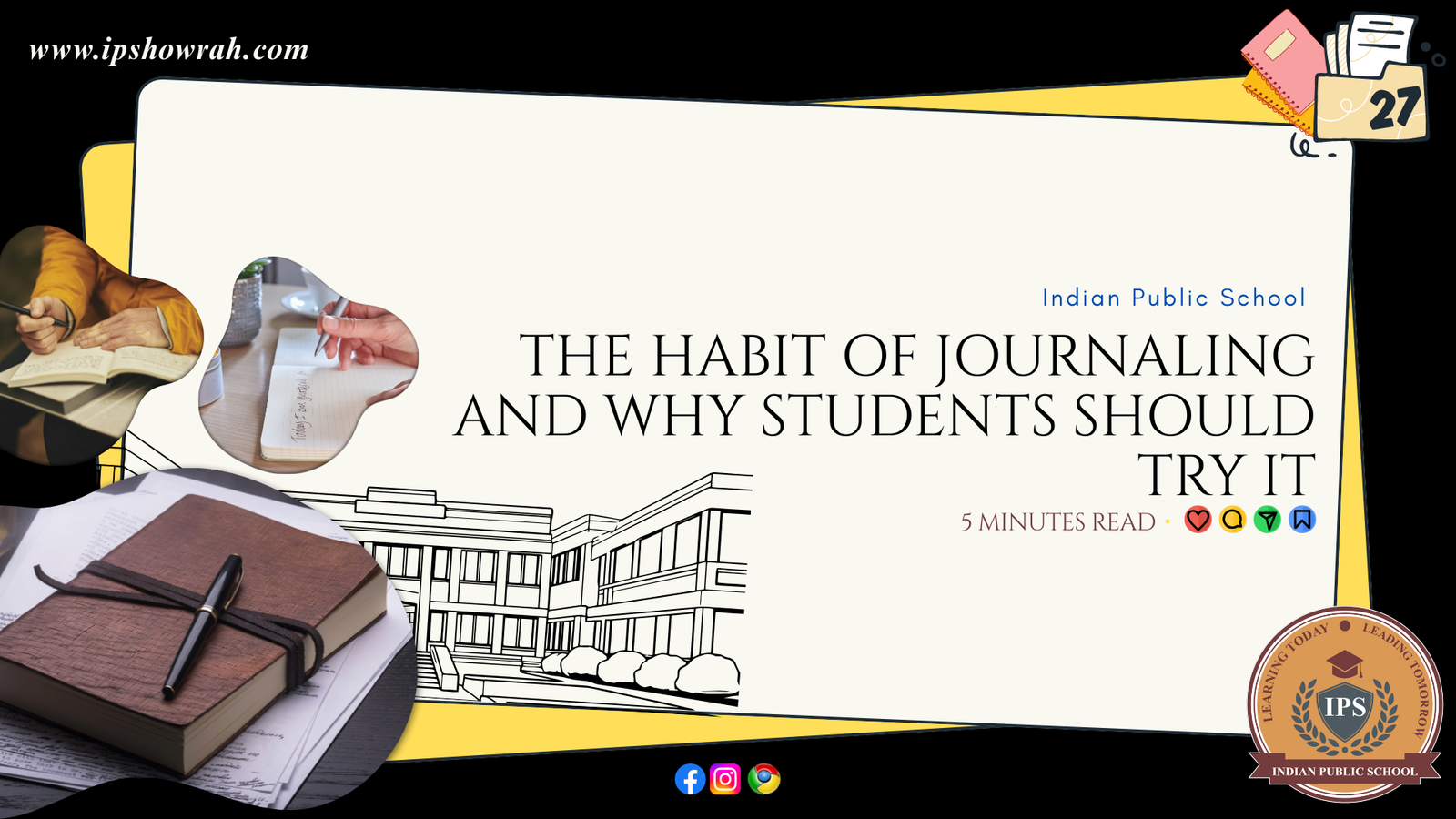The Habit of Journaling and Why Students Should Try It

Have you ever wanted a safe place to share your thoughts, dreams, or worries – just for yourself? That’s exactly what journaling offers. Journaling for students means writing down your ideas, feelings, and daily experiences in a notebook, diary, or even on your computer.
Far from just another school assignment, keeping a journal can become a powerful habit that helps you understand yourself better, manage emotions, and even spark creativity. In this article, let’s explore why the benefits of journaling are so important for students – and how you can start your own journaling practice today.
What Is Journaling?
At its heart, journaling is simply the act of writing about your life. It can be as short as a sentence or as long as several pages. There’s no need for perfect spelling or fancy words – your journal is a judgment-free zone just for you. Some students write every day, while others journal only when they feel inspired. The great thing is, there are no rules – your journal is whatever you want it to be.
Why Should Students Try Journaling?
Journaling for students is more than a creative exercise. It’s a tool that can help you grow emotionally, handle stress, and discover new ideas. Let’s look at some of the biggest benefits of journaling for young learners.
Helps Manage Emotions
School, homework, friendships, and personal dreams can all bring up big feelings. Sometimes, it’s hard to talk about everything with family or friends. A journal lets you process your emotions safely. Writing about tough days helps you understand why you feel a certain way, and over time, those feelings often feel lighter. Journaling can also help celebrate your happy moments, making them even more special.
Boosts Creativity
When you use a journal as a playground for your ideas, you might be amazed at what you create. Try writing stories, drawing comics, imagining new inventions, or brainstorming solutions to problems. Journaling for students is a place where your imagination can run free – no grades, no limits. Many students find that the more they write, the more ideas they have for school projects or personal hobbies.
Improves Writing Skills
It’s no secret that practice makes perfect. The more you write in your journal, the better your writing becomes. You’ll experiment with new words, play with sentences, and develop your own unique style. Over weeks and months, you’ll notice your essays, reports, and even emails become clearer and more confident.
Builds Healthy Habits
Making time for journaling teaches you about discipline, self-care, and reflecting on your day. Like brushing your teeth or eating breakfast, journaling can become a daily habit that supports your well-being. Regular reflection helps you set goals, notice patterns in your life, and grow as a person.
Reduces Stress and Anxiety
Big tests, social pressures, and even small frustrations can add up. Writing about your worries helps you “offload” them onto the page, so they feel less overwhelming. Many students find that journaling before bed helps them sleep better, too.
Easy Ways to Start Journaling
If you’re curious about the benefits of journaling but not sure how to begin, here are a few simple ideas:
– Pick a notebook or app you like. Choose something that feels special, whether it’s a colorful diary, a simple notepad, or a digital app you enjoy using.
– Write whatever comes to mind. Write about your day, your dreams, a special moment, or even your favorite songs. There’s no right or wrong way to journal.
– Try a prompt. Sometimes, getting started is the hardest part. Use questions like “What made me smile today?” or “What’s one thing I’m proud of?” to spark ideas.
– Make it a habit. Try to write a little each day, even if it’s just one sentence. If you miss a day, that’s okay – just try again tomorrow.
– Mix words and pictures. Draw doodles, paste photos, or make collages. Your journal can be as artistic as you want.
– Keep it private. Remember, your journal is for you. Unless you want to share, keep it in a safe place and respect your own privacy.
How Journaling Helps in School and Life
Journaling for students isn’t just a way to practice writing – it’s a way to make sense of your world. Students who journal often find it easier to handle stress, express their thoughts in class, and come up with creative solutions to problems.
In group projects, students with strong self-awareness and clear expression contribute more and find teamwork smoother. Over time, the benefits of journaling ripple out into all areas of school, friendships, and family life.
Common Challenges – And How to Overcome Them
I don’t know what to write about.
Start small. Write about your breakfast, your walk to school, or a funny thing your friend said. The more you write, the more ideas you’ll have.
I don’t have enough time.
Even five minutes counts. Try journaling while you eat a snack, wait for the bus, or just before bed.
I’m worried someone will read my journal.
Talk with your family about privacy, and keep your journal in a special place – maybe under your pillow or in a locked drawer.
I’m not a good writer.
Journaling isn’t about being perfect. It’s about expressing yourself. Anyone can keep a journal, no matter their age or skill.
Frequently Asked Questions
Is journaling the same as writing for school?
No. Journaling is a personal activity with no grades or rules. You’re writing for yourself, not for a teacher.
Can I type my journal on the computer?
Absolutely! Whether you prefer paper or pixels, the benefits of journaling are the same. Choose the format that feels best for you.
What if I run out of things to say?
Try writing about small moments, asking yourself questions, or even copying your favorite quotes. A new idea could appear at any time.
How often should I journal?
Aim for a few times a week, or whenever you feel like it. The important thing is to start – not to stick to a strict schedule.
Can journaling help me do better in school?
Many students find that regular journaling helps them think more clearly, handle stress, and express themselves in class. Over time, it can make school feel easier and more enjoyable.
Conclusion
Journaling for students is a simple, powerful habit with lasting rewards. By writing about your thoughts, feelings, and daily experiences, you’ll boost your emotional health, ignite your creativity, and develop stronger writing skills.
The best part? There’s no right or wrong way to keep a journal – just start, and see where your words take you. Give journaling a try, and unlock a world of the benefits of journaling in your life. You can follow us on Instagram and Facebook for more updates.



